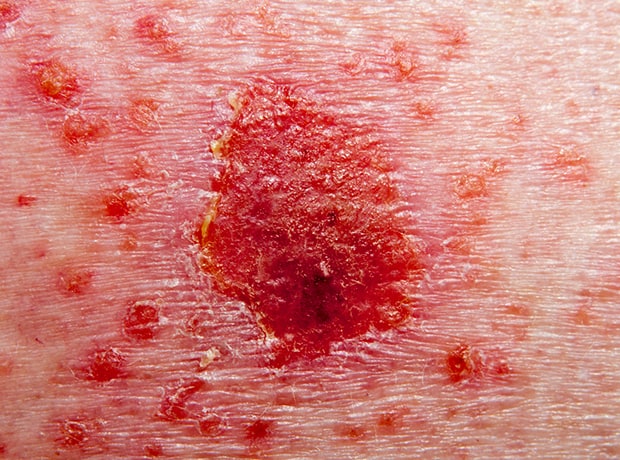Researchers from King’s College London (KCL) have investigated the early effects of AbbVie’s immunosuppressant drug, Skyrizi (risankizumab), which could help clinicians develop personalised treatment approaches for patients living with psoriasis.
Published in Nature Communications, researchers studied the early effects of the biological IL-23 inhibitor on patients’ skin.
Affecting between one and two million people in the UK, psoriasis is an incurable chronic skin disease that can develop into a severe and debilitating condition.
For some patients with severe cases of psoriasis, immunosuppressant drugs, including biologics – injectable drugs that target specific proteins in the body – can increase the risk of
developing infections.
Researchers took skin samples from five individuals living with severe psoriasis and studied their cells at the beginning of treatment and then again after three days and two weeks of receiving Skyrizi.
In total, the study profiled over 160,000 individual skin cells using single cell sequencing.
Researchers discovered that fibroblasts started to show less inflammation just after three days of treatment.
The results suggest that monitoring skin cells like fibroblasts could help clinicians understand whether an individual is responding to treatment and could alter their treatment.
Dr Satveer Mahil, reader at KCL and consultant dermatologist, St John’s Institute of Dermatology, Guy’s and St Thomas’ NHS Foundation Trust, said: “The study shows that the drug is affecting skin cells well before its effects become clinically apparent.
“We are very excited about the future use of single-cell technologies for understanding drug effects and advancing outcomes for people with psoriasis.”
As part of a collaboration between AbbVie and Boehringer Ingelheim, Skyrizi is currently approved in the US and EU to treat certain patients living with Crohn’s disease, plaque psoriasis and psoriatic arthritis.
In addition, the drug has been investigated as a potential treatment for ulcerative colitis, an inflammation of the lower end of the digestive system, including the large bowel and rectum.










